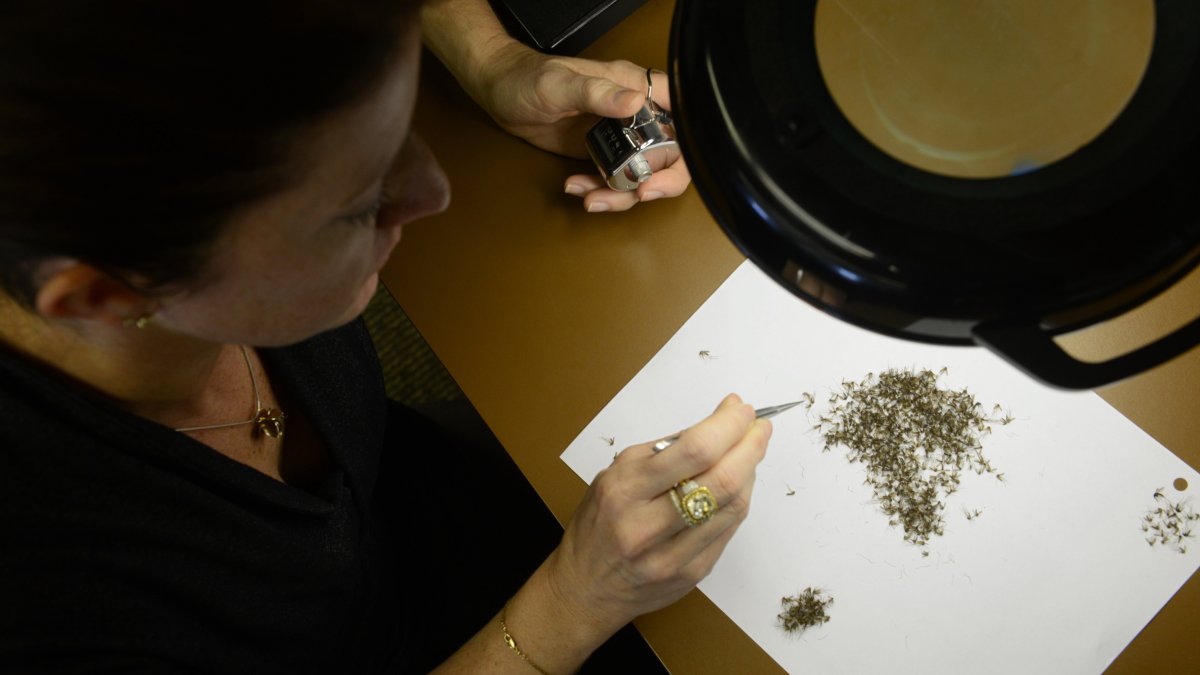Curfews and mass spraying in Massachusetts due to lethal mosquito virus
State officials have declared that ten communities face a high risk of transmission of Eastern Equine Encephalitis (EEE), an infectious disease for both horses and humans.

File image of an eastern equine encephalitis virus test
By truck or light aircraft, the spraying plan begins this week in 10 communities in Massachussets after authorities declared them areas of "high or critical risk for the Eastern Equine Encephalitis (EEE) virus."
EEE or Triple E is a virus transmitted by the bite of an infected mosquito. Although rare, its consequences can be serious according to the Centers for Disease Control and Prevention: 30% of infected people die, and "many" survivors have neurological problems.
The Massachusetts Department of Public Health detected the first case of the year nearly two weeks ago: an 80-year-old Worcester County man. The last outbreak in the state was four years ago and resulted in 17 cases of infection and seven deaths.
"Aerial spraying will target mosquitoes carrying the EEE virus," Ashley Randle, commissioner of the Massachusetts Department of Agricultural Resources, explained of the distribution of the pesticide Anvil 10+10, which will be conducted in the evenings when weather permits.
Health officials also advised neighbors that, "although special precautions are unnecessary" if they wish to minimize contact with the pesticide to stay indoors. They recommended the same for those with special "sensitivities" to chemicals or respiratory conditions, such as asthma.
However, sprays will not be enough to eliminate the mosquito. "While these measures are crucial for reducing transmission risk, it's vital for everyone to stay vigilant and follow personal protection guidelines to safeguard our community," Randle warned. Recommendations include wearing repellent and dressing in clothing that covers the skin, as well as avoiding outdoor activities between dusk and dawn.
In that sense, local authorities in some communities also issued guidelines such as a curfew during peak risk hours, a voluntary measure in Oxford and mandatory in Plymouth, which on Friday announced it would close public spaces such as parks.
Which areas will be sprayed?
The five communities in the truck spraying zone are Douglas, Dudley, Oxford, Sutton and Uxbridge.
The details about the spraying plan can be found on the website of the state Department of Public Health.
No vaccine or medication
The first symptoms of Triple E appear 3 to 10 days after the bite. Some of the most common are fever, headaches and tiredness, while one of its most serious and frequent consequences is encephalitis, the inflammation and swelling of the brain.
There is no preventive vaccine or medication to treat it, so experts maintain that prevention is crucial.
The virus' name refers to horses ("Eastern Encephalitis Equina") because it was first discovered in these animals in the 1830s, according to the Cleveland Clinic. But horses, like people, do not transmit the virus, even if they are sick and bitten by a mosquito.

























